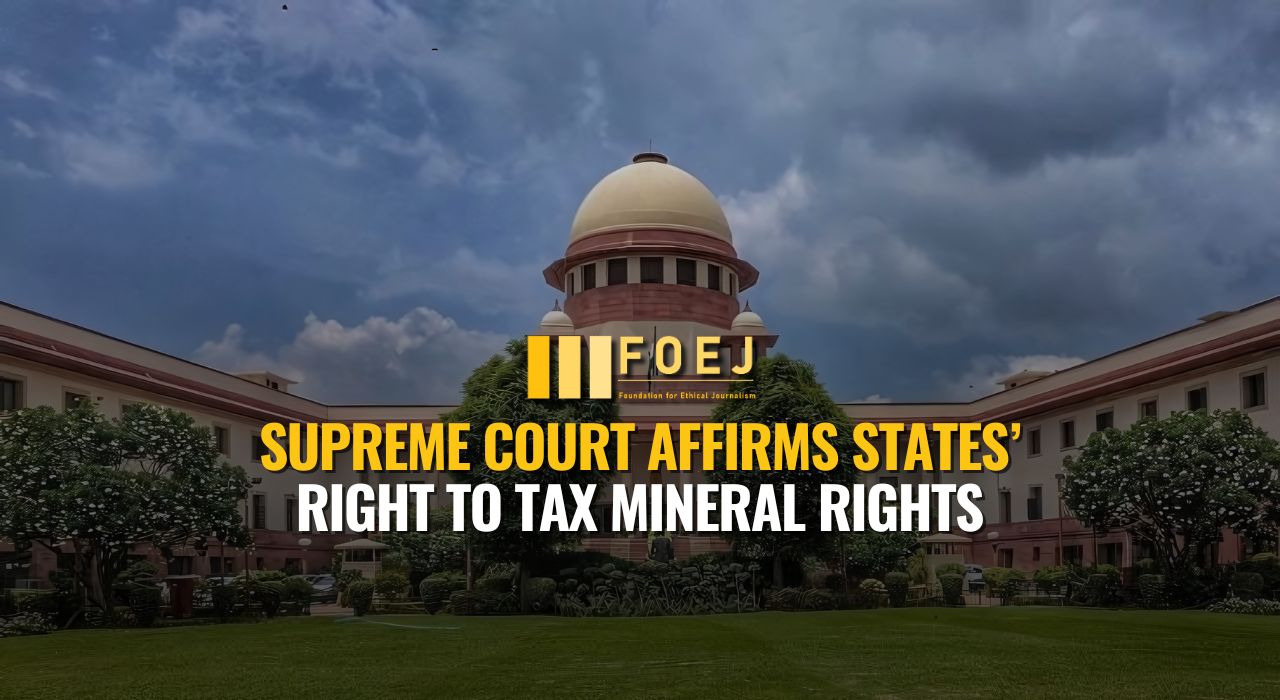A nine judge constitution bench of the supreme court on Thursday said that the royalty paid for mining operations to the central government is not a tax and the states have the power to levy cases on mining and mineral use activities.
The judgement was delivered by the Bench of Chief Justice of India (CJI) DY Chandrachud with Justices Hrishikesh Roy, Abhay S Oka, BV Nagarathna, JB Pardiwala, Manoj Misra, Ujjal Bhuyan, Satish Chandra Sharma and Augustine George Masih with Justice Nagarathna dissenting from the majority.
The Court ruled that the Mines and Minerals (Development & Regulation) Act (Mines Act) will not take away the States of the power to levy tax on mineral rights.
“Royalty is not in the nature of tax … We conclude that the observation in India Cements judgment stating that royalty is tax is incorrect … Payments made to the government cannot be deemed to be a tax merely because a statute provides for its recovery in arrears,” CJI Chandrachud said.
Justice BV Nagarathna, however, disagreed and said,”I hold royalty is in nature of the tax. States have no legislative competence to impose any tax or fee on mineral rights. Entry 49 is not related to mineral-bearing lands. I hold India cement decision was correctly decided.”
Arguments made by States in Court
Senior Advocate Rakesh Dwivedi, representing Jharkhand, argued that the term “limitation” in Entry 50 List II (states’ taxing powers on mineral rights) should not imply a transfer of taxing power to the Parliament. Meanwhile, Senior Advocate Vijay Hansaria, for the Mineral Development Authority of Uttar Pradesh, emphasised that Entry 50 List II limits states’ authority without enabling Parliament to levy taxes on mineral rights.
Arguments by the Central Government
The Union government, represented by Attorney General R. Venkataramani and Solicitor General Tushar Mehta, argued that Entry 50 of List II naturally restricts state powers and should be understood broadly to ensure effective national management of minerals. They also claimed that the Mines and Minerals Act itself limits the states’ authority to levy taxes.
Conclusion given by the Supreme Court
The Supreme Court has ruled that royalties and dead rent paid by mining operators to the government are not the same as taxes. They overturned a previous judgment from the India Cements case, which classified royalty as a tax. The court also stated that the Mines and Minerals Act does not restrict states’ authority to impose taxes. Specifically, royalty under Section 9 of the Mines Act is now clarified not to be considered a tax.









